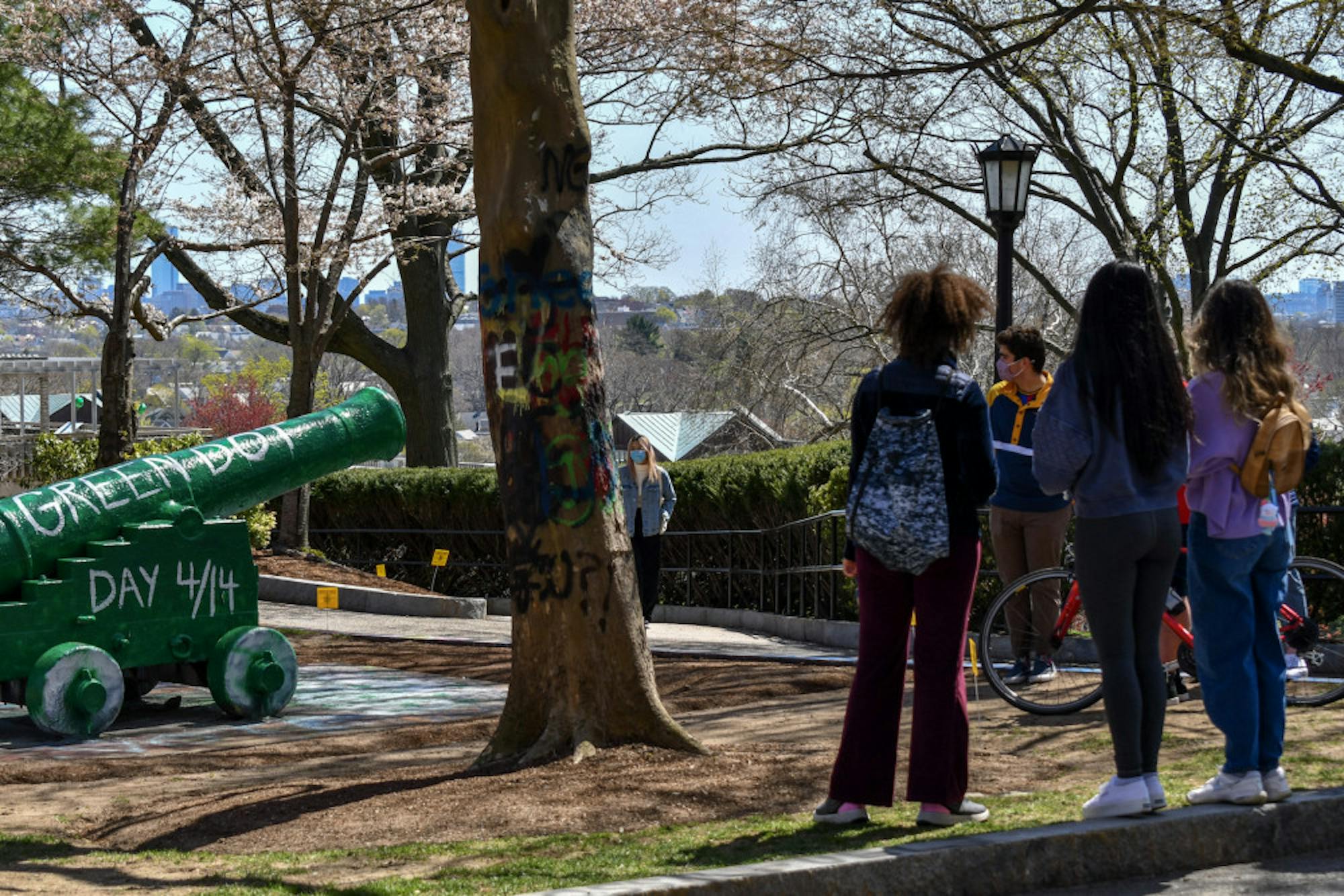The new Tufts Community Union Constitution, which the Tufts student body voted to ratify last spring, includes a provision that requires all student organizations to receive Green Dot training.
Green Dot is a student-led group aimed at teaching members of the Tufts community to engage in bystander intervention to both reduce the risks of and proactively prevent sexual misconduct.
According to Alexandra Donovan, the director of the Center for Awareness, Resources, and Education at Tufts, the goal of mandated training is to give the leadership of all TCU-recognized student organizations the skills and resources to incorporate Green Dot risk reduction and prevention strategies into their group’s gatherings, practices and meetings.
For every ten student organization members, one member of the group’s executive board must attend a Green Dot training. Clubs which do not comply become ineligible for TCU membership or recognition.
“[Club] leadership needs to attend this training and then bring Green Dot back to their group,” Donovan said. “Otherwise, they have to prove that it was an agenda item or [that] as a full group they talked about it in some way.”
Along with facilitating mandated training sessions for club leaders, Green Dot also provides drop-in training sessions for any interested students. Primarily, training focuses on what Green Dot calls “The 3 Ds,” a variety of strategies that active bystanders can use in situations that could lead to sexual misconduct. These stand for direct, distract and delegate, meaning that the bystander can engage with the people involved, defuse the situation by means of distraction or find someone better equipped to handle the situation.
Hannah Goldberg, a member of the women’s rugby club team, is one of many students who have recently received Green Dot training. At the training, Goldberg said, she learned various ways to intervene in a situation that could lead to sexual misconduct.
“Flicking lights to distract people is a go-to and it’s really easy,” Goldberg said. “If I ever see something … that’s something I would feel comfortable doing.”
Green Dot aims to provide many ways to intervene in situations when someone seems uncomfortable at a social gathering, and gives the trainees options that fit their own comfortability level regardless of the context.
“Green Dot is about giving people choices, so that if you are seeing something, you’ve got some options on how to interrupt it,” Donovan said.
Some clubs, sports teams and Greek organizations often have Green Dot representation at their social gatherings. For example, some gatherings may post the phone number of a Green Dot representative on the wall, which people can text if they feel uncomfortable.
While these trainings give people specific risk reduction tools, they largely focus on how to create a community that focuses on prevention and normalizes intolerance of sexual misconduct. Bijin Basu, a sophomore Green Dot executive, described the importance of the distinction between risk reduction and prevention, which is giving people “a set of tools to be ready with.”
“The idea of prevention is … people are noticing when something is not okay and why [it’s] not okay, and [saying] ‘These are the things I can do,’” Basu said.
Donovan added that a culture of risk prevention is the ultimate goal for the student body.
“One of the areas where people get lost or confused about is that they think prevention is:‘How do I get a cup condom to put over my cup when I’m at a party?’ or ‘How do I get the latest personal alarm system?’ Those aren’t prevention. That’s risk reduction,” Donovan said. “Prevention is focusing on the people that are doing these behaviors.”
Prevention, according to Donovan, is also about how to set up events and ensure that groups know the importance of risk reduction and the harms of sexual misconduct before it ever occurs.
“We want to be creating a culture where this doesn’t happen. If all of us recognize that we have a role, it’s going to move us to a place that’s going to be safer for all of us,” she said.
With the new update to the constitution, Green Dot can reach student populations that it hasn’t before.
“We’ve had two weeks of these TCU trainings going, and 90% of the people that have gone through the TCU mandated trainings have never had a Green Dot training before,” Donovan said.






